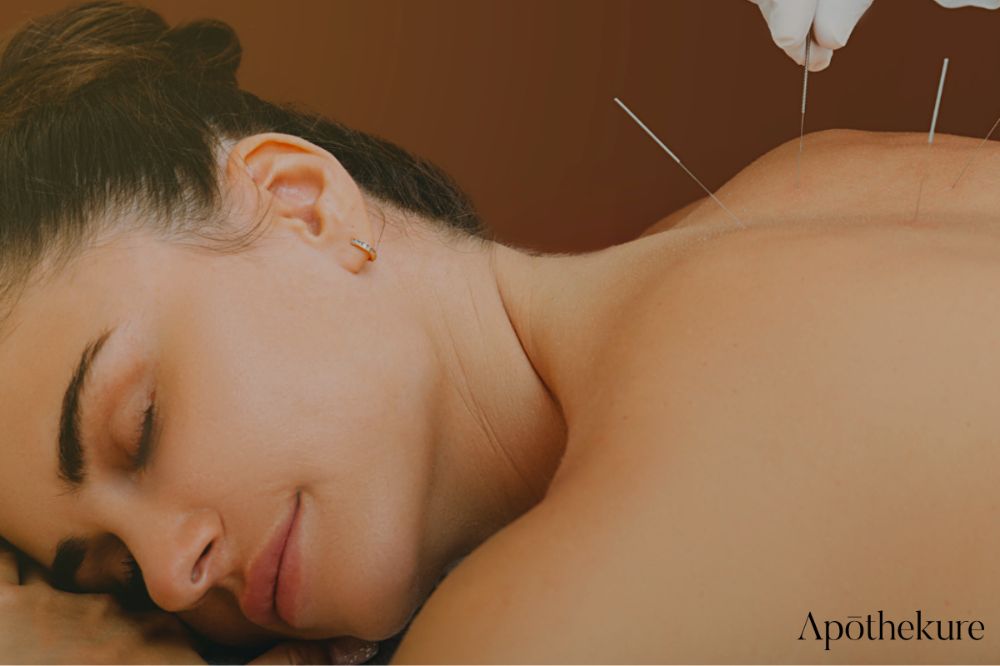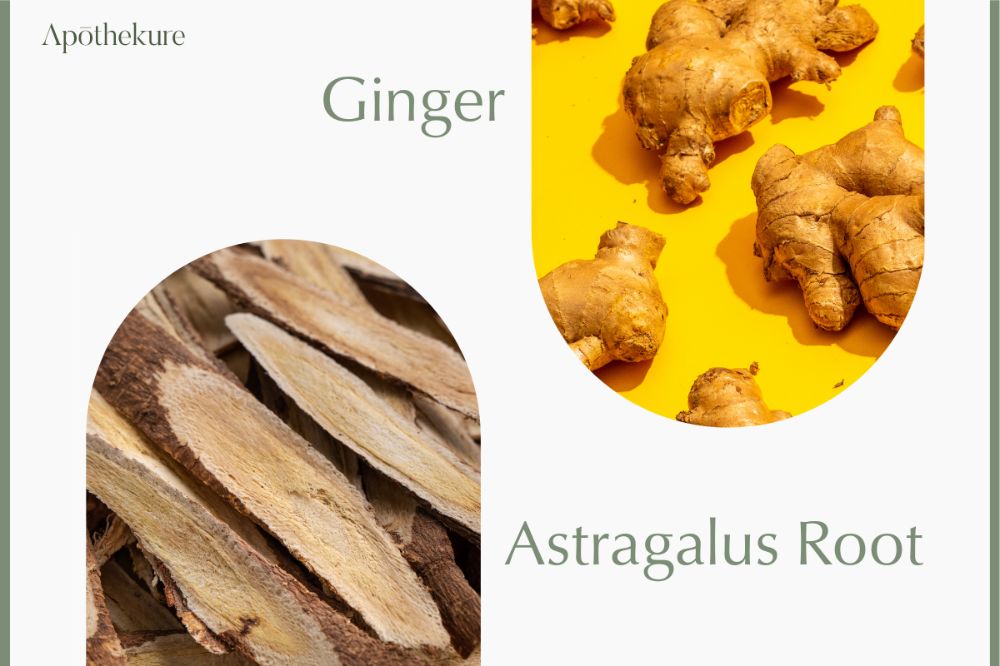Feel Better: Reduce Dampness With Eastern Medicine

What is Dampness in Traditional Chinese Medicine?
Do you feel like something is off and your health is out of balance? For thousands of years, Eastern medicine has been used to help people achieve balance, harmony and wellness in their lives. This holistic approach to health can help reduce dampness in the body, resulting in improved overall health.
In this article, we'll discuss what dampness is, its causes, symptoms, and how Eastern medicine or traditional Chinese medicine (TCM) can help reduce it. We'll also provide tips on how to create a balanced lifestyle, including the use of acupuncture, herbal remedies, dietary therapy and exercise. Let's dive right in!
What Are Its Causes?
When it comes to traditional Chinese medicine, understanding the causes of dampness is an important part of using Chinese medicine to balance your health. Dampness is caused when the body's natural balance is disrupted, either by external or internal factors.
Externally, dampness can be caused by the environment, such as exposure to damp or humid climates, or the consumption of certain foods and drinks. Foods that are particularly prone to causing dampness are those that are high in sugar, such as cakes, cookies, sweet drinks, and white rice. In terms of drinks, coffee, alcohol, and carbonated drinks are known to create dampness in the body.
On the other hand, internal dampness can result from physical and/or emotional stress. Physical stress occurs when the body is overworked and exhausted, leading to a disruption of the body's natural flow of qi, or life energy. Emotional stress can be caused by feelings of anxiety or depression. In both cases, the body's qi is blocked, resulting in the accumulation of dampness.
By understanding the causes of dampness, you can use Eastern medicine to balance your health.
What Are The Symptoms
If you are looking to reduce dampness in your body, it is important to know the symptoms associated with it. According to TCM, dampness affects the body as it accumulates in various areas and can cause several physical problems.
One of the first signs of dampness may be a general feeling of sluggishness and fatigue. You may find that you are:
- Tired - and even more tired the next day and unable to muster the energy to get through the day.
- More sluggish and lethargic during certain times of the day
- More inclined to take naps during the day.
- Experiencing swelling in the joints and muscles. This swelling and pain can cause difficulty walking and moving around, as well as general discomfort in the body.
- Having a sense of heaviness or tightness in your body, which can make it difficult to move around or lift things.
- More stressed and feeling easily overwhelmed by everyday problems.
In addition to these physical symptoms, you may also find that dampness has an effect on your mood. This can include feeling irritable, prone to mood swings, and that your sleeping pattern is disturbed.
If you are suffering from any of these symptoms, it is important to seek help from a TCM practitioner. They can provide you with the tools and complementary knowledge you need to get your health back on track.
How Eastern Medicine Can Help Reduce Dampness
There are several ways that Eastern medicine can help reduce dampness. One of the most common is Chinese herbal medicine. Chinese herbal medicine is used to treat a wide range of ailments. Herbal formulas are tailored to the individual, helping to promote balance within the body while working to reduce dampness. They work by helping to strengthen the body’s Qi, or vital energy, while helping to reduce the amount of dampness in the body.
Acupuncture is another highly effective way to reduce dampness. Acupuncture works by stimulating specific points on the body with needles to help promote balance and reduce dampness. The stimulation of the acupuncture points helps to promote the flow of Qi throughout the body and helps to reduce any excess fluids that may be causing dampness. Acupuncture can provide many other benefits as well, including pain relief and improved sleep. We'll dive into more details about that in the next section.
In addition to herbal medicine and acupuncture, TCM food therapy can help. The therapy is based on the idea that using specific foods and herbs to balance the body and promote overall health. TCM food therapy works by helping to regulate the body’s Qi and reduce dampness. Some of the foods and herbs that may be used in Chinese dietary therapy include ginger, grapes, and seaweed.
Acupuncture

Do you feel like you’re bogged down by dampness? If so, you may want to consider acupuncture. Originating in China, acupuncture is a form of traditional Chinese medicine that works to balance the body’s energy, or qi. It is believed that when qi is imbalanced, it can lead to dampness, which can manifest in physical, mental and emotional symptoms.
The goal of acupuncture is to restore balance and harmony to the body and reduce dampness. An acupuncturist will use very thin needles to target certain points on the body, called acupoints, to stimulate qi. The needles are inserted into the skin and are left in place for a few minutes while the acupuncturist gently manipulates them. It’s important to note that an acupuncturist must be licensed and certified in order to safely and effectively perform the procedure.
Acupuncture is believed to be effective in treating a variety of physical and emotional conditions, including dampness. It is said to reduce inflammation and improve circulation, both of which can help reduce dampness. It also works to restore balance and harmony to the body, which can decrease the symptoms of dampness.
TCM Herbal Remedies

Many herbal remedies can help reduce dampness and restore the body's balance.
One of the most popular herbs used for this purpose is Astragalus root. Astragalus root is a traditional Chinese herb that has been used for centuries to improve digestion, boost the immune system, and reduce dampness. It is believed that Astragalus root helps to strengthen the body's yin and yang, restoring balance and promoting better health.
Ginger is another popular herb used to reduce dampness. Ginger is a warming herb that is believed to reduce dampness and help the body's yin and yang return to balance. It is often used in traditional Chinese medicine to treat digestive issues and other ailments.
Other herbs that are often used to reduce dampness include Bupleurum root, White Peony root, and Codonopsis root. All of these herbs have been used for centuries to restore balance and reduce dampness. By utilizing the healing properties of herbal remedies, you can achieve better health and feel more energetic and vibrant.
Dietary Therapy
One of the ways that Eastern Medicine can be used to reduce dampness is through dietary therapy. This approach has been used in Chinese Medicine for centuries and is based on the idea that certain foods can help to bring balance and harmony to the body, mind, and spirit.
When treating dampness with TCM food therapy, the goal is to bring balance to the body by avoiding foods and activities that increase dampness. Here are a few tips to get you started:
- Eat more fresh fruits and vegetables, which are high in water content and will help to flush out toxins.
- Reduce dairy products, which can contribute to dampness.
- Avoid eating refined and processed foods, which are typically high in sugar and other unhealthy additives.
- Eat more lean proteins, such as fish and poultry, as they are digested more slowly and can help you stay fuller longer.
- Eat small, frequent meals throughout the day.
- Reduce foods that are known to cause dampness, including fried and greasy foods, sugary treats, and alcohol.
- Avoid eating late at night, as overeating late can disrupt your body's natural circadian rhythms.
- Exercise regularly, as it helps to break down dampness and promote healthy circulation.
Diet and exercise, along with acupuncture and herbal remedies can provide a holistic approach to addressing the root cause of the problem. By combining Eastern Medicine with a healthy diet and active lifestyle, you can restore balance in your body and enjoy improved physical and mental wellbeing.
Steps to Create a Balanced Lifestyle
Creating a balanced lifestyle is paramount for achieving optimal health and reducing dampness. Here are a few simple steps you can take to initiate balance into your daily life:
- Nourish your body holistically. Eating seasonal and local foods that are in balance with your individual constitution is the best way to nourish your body and create balance. Eating cooked food cooked with traditional methods helps to absorb the nutrients. Additionally, eating a small portion at regular intervals helps keep your energy level steady and promotes digestion.
- Exercise regularly. Moving your body on a regular basis helps keep your digestion and elimination system in balance. Tai chi and qi gong are both traditional Chinese exercises that work to restore energy in the body. Whatever activity you choose, try to find one that you enjoy - it could be anything from yoga to hiking - and strive to do it every day.
- Get adequate rest. Having a good night’s sleep is vital for achieving balance in your life. Make sure to get at least 8 hours of sleep per night and try to go to bed early. If you're having issues regulating your sleep cycle, we recommend trying our Cloud Nine supplement.
- Take time to de-stress. Stress wreaks havoc on your body and it is important to make time to relax. Taking a few minutes each day to meditate or practice deep breathing can help to reduce stress levels and bring about a sense of calm.
- Utilize herbs and acupuncture. Traditional Chinese herbs have been used for centuries to restore balance and reduce dampness. Additionally, acupuncture can help to relieve pain and improve your overall health.
Following these steps can help you to create a balanced lifestyle and reduce dampness in your body. With a few simple changes to your daily routine, you can achieve optimum health and restore balance to your life.
Exercise
Exercise is an important part of eastern and western medicine alike. Eastern medicine uses exercise to help increase circulation and move Qi through the body to help energize sluggish systems. Western medicine often recommends exercise to help with stress relief, improve cardiovascular health, and even improve mental wellbeing.
Earlier, we mentioned how Tai Chi can help. It is a form of Chinese martial art that focuses on slow, controlled movements and breathing, which can help to move Qi and reduce dampness. Yoga is another type of exercise which focuses on stretching and meditation, which can help to relax the body and reduce stress.
.png)
Another way to reduce dampness is through aerobic exercise. This type of exercise involves a repetitive pattern of movements that gets the heart rate up, which increases blood circulation and helps to move Qi. Running, cycling, and swimming are all good aerobic exercises that can help reduce dampness.
Finally, strength training is an important type of exercise for reducing dampness. Lifting weights helps to build muscle and increase circulation, which can help reduce dampness. Adding some resistance exercises, such as bodyweight squats or push-ups, to your routine can also help reduce dampness.
Stress management
Stress can have a significant effect on our bodies. It can lead to stagnation of Qi and Blood, particularly affecting the Liver, Heart, and Spleen. This can result in 'liver heat', which impairs the liver's ability to store blood. To counter this imbalance, we can promote our body's natural restorative processes.
Mindful breathing exercises can help to reduce the tension and anxiety associated with stress, while light exercise or stretching can stimulate the circulation of Qi and Blood. The ancient Chinese practice of Qigong supports bringing balance and harmony to the body. It involves both meditative and mindful exercises that involve slow, rhythmic breathing and stretching of the body. This can help to relax the body and mind, reduce stress, and improve overall wellbeing.
Getting enough sleep

Poor sleep is one of the most common issues associated with dampness, as it can weaken the body's ability to expel toxins and fluids from the body, leading to an accumulation of dampness.
So how do you make sure you're getting enough sleep?
First, focus on developing a regular sleep pattern and stick to it. Establishing a set bedtime and wake time can help you create a healthy sleep schedule that will ensure you get an adequate amount of rest.
Second, practice good sleep hygiene. Avoid caffeine and stimulants close to bedtime, as they can interfere with your ability to fall asleep. Make sure your bedroom is dark and quiet, and limit exposure to electronics like phones and computers as they can negatively affect your sleep quality.
Third, try relaxation techniques like meditation or deep breathing exercises to help clear your mind from the stresses of the day. This can help make it easier for you to drift off to sleep.
Fourth, consider adding herbs to your diet. There are a number of herbs that are believed to be beneficial for promoting better sleep. Ingredients including Jujube seeds (suan zao ren), arborvitae seeds (bai zi ren) and poria (fu ling), found in our Cloud Nine supplement are a few that can help.
Finally, consult a practitioner of Eastern medicine. They can offer individualized advice to help you get the rest you need to reduce dampness in your body.
Conclusion
Complementary and alternative medicine like TCM is a great way to incorporate balance and holistic healing into your life. It has been practiced for centuries for a variety of ailments, including dampness. Dampness is an imbalance in the body that can lead more serious problems. It can be caused by many factors, including dietary habits, weather, lifestyle, and environment. Fortunately, there are a variety of ways to treat it using traditional Chinese medicine. Acupuncture, herbal remedies, dietary therapy, and lifestyle changes are just some of the many different treatments that can help.
Get your daily dose of wellness delivered straight to your inbox. Sign up now for our newsletter.
Disclaimer:
These statements have not been evaluated by the Food and Drug Administration. This product is not intended to diagnose, treat, cure, or prevent any disease.
The content is purely informative and educational and should not be construed as medical advice. Any opinion expressed should not be treated as a substitute for professional medical advice. By using this website, you accept our Terms & Conditions and Privacy Policy. We cannot guarantee the accuracy of the information presented at this site. This article is not intended to be used as a substitute for the diagnosis and treatment of any health problem or to prescribe any medication or other treatment. You should consult with your health care provider before starting any diet, exercise, or supplementation program, before taking any medication, or if you have or suspect you might have a health problem.
